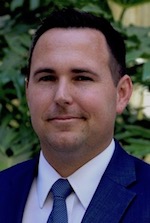Daily Business Report-Jan. 19, 2018
Image via Thinkstock
Dozens of California Districts With Worst Test
Scores Excluded from Extra State Help
By Jessica Calefati | CALmatters
Dozens of California school systems with some of the state’s worst test scores and biggest academic achievement gaps won’t get any extra help this year under a support system launched recently by the state.
The new dashboard system rates districts in several categories that impact student learning. But — mirroring a nationwide shift away from a narrow focus on tests — it offers special help to ones with sagging academics only if they also suspend a high number of students or graduate too few of them.
If extremely low, declining performance on math and reading exams alone were enough to trigger state support, the number of California districts that could expect it would almost double from 228 to more than 400, a CALmatters analysis shows.
The analysis also revealed that well over 100,000 students across the state belong to key demographic subgroups that scored poorly on the test but won’t get help. The disparity for students in the Latino subgroup with poor test results is especially stark: More than 95 percent are missing out on extra state support.
Part of the problem, experts say, is that categories such as suspension and graduation rates are susceptible to manipulation by districts seeking to avoid scrutiny. They also questioned why the lowest test scores don’t automatically activate outside help.
“Under this system, districts can escape notice or attention simply by shining in categories that are less than academic and whose outcomes they control,” said Chad Aldeman, an education policy expert whose Boston-based nonprofit group flagged this problem in a recent report on California’s school accountability system.
Raising similar concerns, the federal government recently notified the state that California’s school accountability system might be out of compliance with federal education law, in part because of its diminished focus on academics.
The state created the color-coded dashboard system to identify its lowest-performing school districts. To determine them, the state isolates about a dozen student subgroups (such as Latino students or poor students) and rates them in four categories: academic test performance, suspension rate, graduation rate and success teaching English to students who can’t speak the language.
Earning red ratings in any two categories triggers special state help for the underperforming subgroups in that school system.
But numerous subgroups of students with some of the states’ worst test scores didn’t make the cut. About a third of California’s roughly 1,000 school districts have at least one low-performing subgroup that’s not set to get any extra assistance.
Districts that do get flagged qualify for increasing levels of state intervention—starting with a data analysis conducted by a county office of education that’s aimed at understanding the root causes of poor performance, and escalating up to possible state takeover if a district fails to improve. The dashboard does not explicitly record the size of the achievement gap—even though state officials call narrowing it a top goal.
Among examples that illustrate the support system’s shortcomings:
In Santa Ana, one of the state’s largest school districts, only 4 percent of students learning English passed the state test in math and just 2 percent passed reading, levels of performance labeled red and orange on the dashboard. Yet Santa Ana didn’t make the cut. That’s because English learners there earned better than red in all the other key categories.
Stockton’s test scores show that it has eight extremely low-performing student subgroups—more deficient subgroups than any other district in the state. But only one, disabled students, are set to get state assistance.
In San Francisco, fewer than one in five black students passed state tests in math and reading. But because black students’ suspension and graduation rates won orange and yellow ratings, the district doesn’t qualify for outside help aimed at them.
In fact, almost none of the districts with the state’s absolute worst test results for poor and minority students and the largest academic achievement gaps will receive special assistance.
State Board of Education President Michael Kirst and State Superintendent for Public Instruction Tom Torlakson declined CALmatters’ requests for interviews. But in a joint response to our questions, their spokespeople said the state’s criteria for special assistance and the list of districts set to get it reflect California’s deliberate move away from accountability driven by test scores alone.
“That said, test scores are important,” Janet Weeks and Bill Ainsworth wrote. “If a subgroup has very low test scores, they have met half the requirement for assistance.”
Separately, the officials released a statement saying that while they don’t agree with all of the U.S. Education Department’s findings, they welcome the feedback.
___________________
San Diego Author Sally J. Pla Wins
National Award for Debut Novel

San Diego author Sally J. Pla received the national Dolly Gray Children’s Literature Award for her debut novel “The Someday Birds” (Harper Collins, 2017). The award recognizes high-quality books for children, adolescents, and young adults that authentically portray individuals with special needs. Pla’s protagonist is a 12-year-old boy with autism, though the focus of the book is his cross-country road trip to visit his father.
The award is especially meaningful because Pla’s highly anticipated second novel “Stanley Will Probably Be Fine” (Harper Collins, 2018), which also features a protagonist with autism, is set to hit bookstores in early February. The middle-grade tale of anxious Stanley, a comic-book enthusiast who invents his own super-hero to help get him through the day, has already been named a Junior Library Guild Selection for 2018. In a starred review, Kirkus recommended Pla’s novel be added to the list of “intelligent books about kids whose brains operate outside the norm.”
As a mother of a son with autism, Pla wanted to write stories that featured neuro-diverse characters involved in a variety of different activities. “These books aren’t about autism,” she says. “They are adventures that happen with characters who just happen to be naturally neuro-divergent.” Autism is not the story, it is one of the many facets of a character. Pla says she wrote “The Someday

Birds” as a “heart gift” to her autistic son. “As a child, he struggled to feel at ease in the world,” she says. “I wanted to say something about what that struggle feels like, to help others realize what that feels like from the inside.” She says there are some excellent books featuring autistic characters, but not enough. And she’s troubled by how many books seem to be written with the sole purpose of enlightening neuro-typical children about why their autistic classmates behave the way they do. “They are well-intentioned, but I hope we can realize that this can also be a little ‘othering’ and ‘pathologizing.’”
Pla says her books take a different approach. “I want to write books for all kids to read and find themselves in,” she says. She values the importance of heightening awareness about autism to neuro-typical audiences, but also wants to hold up a reassuring mirror to kids on the spectrum. For example, in “The Someday Birds.” “I want kids to read about Charlie’s super-comfort-driven clothing choices and see themselves, or hear about how Stanley gets Red Alerts from public transportation, and maybe share a knowing laugh because they do that too,” says the author. “And there’s no judgment. These characters are no one’s Exhibit A or case study. They are simply heroes of a story who also happen to be on the spectrum.”
___________________
NASA, Navy to Conduct Orion Spacecraft Recovery Test
ExecutiveGov
The U.S. Navy deployed a San Antonio-class amphibious transport dock Wednesday to support a NASA spacecraft recovery test off the coast of Southern California.
USS Anchorage departed from San Diego Naval Base for the Underway Recovery Test 6 that will train personnel to recover the Orioncrew module after the spacecraft completes Exploration Mission-1 slated to occur in late 2019, the service branch said.
URT will also evaluate open ocean recovery processes, procedures, hardware and personnel tasked to retrieve Orion upon return to Earth.
USS Anchorage’s bridge team will monitor the ship as it conducts restricted conditions during URT 6, while boats of Navy divers and NASA recovery teams will rig tending lines and guide a Boiler Plate Test Article.
BTA is designed to have the same size, shape and center of gravity as the Lockheed Martin-built spacecraft.
NASA plans to hold three more URTs prior to the EM-1 launch with daytime and nighttime recovery operations meant to prepare agency and Navy personnel to handle and store the capsule.
___________________
Transport Dock Ship USS Portland
to Arrive in San Diego on Monday
The future amphibious transport dock ship USS Portland will arrive at its new homeport of San Diego on Monday. The ship is concluding a six-week transit from her building site at Huntington Ingalls shipyard in Pascagoula, Miss.
The ship departed Pascagoula Dec.14 and made port visits to eastern U.S. Naval bases, such as Key West and Mayport, Fla., as well as a visit to Guantanamo Bay, Cuba.
During the transit, the ship also conducted various training operations to include certifying landing craft air cushion operations with Assault Craft Unit 5, and experiencing first-time moments, like passing through the Panama Canal.
Portland is the 11th San Antonio-class amphibious transport dock ship. It is the third ship to bear the name USS Portland, however it is the first ship to be named solely after the largest city in Oregon.
The ship’s formal commissioning ceremony is scheduled for April in Portland, Ore., after which Portland will become part of U.S. 3rd Fleet. Its commanding officer is Capt. J.R. Hill.
___________________
Civil Rights Icon Rep. John Lewis to Deliver
Keynote Address at UC San Diego Commencement

Rep. John Lewis, a national leader of the civil rights movement, will offer the keynote address at the invitation-only UC San Diego All Campus Commencement June 16, 2018.
A devoted advocate of the philosophy of nonviolence, Lewis has remained at the vanguard of progressive social movements and the human rights struggle in the United States. He has served as U.S. Representative of Georgia’s Fifth Congressional District since 1986.
“Rep. John Lewis has dedicated his life to making our world a better place for everyone by protecting human rights and securing civil liberties,” said UC San Diego Chancellor Pradeep K. Khosla. “He stands up for what he believes in and he is not afraid to take risks. These are ideals we aim to convey to our graduates as they commence their careers and lives beyond the classroom.”
___________________
Personnel Announcements
New Sports Medicine Chief Catherine Robertson
Personalizes Athlete Care at UC San Diego Health

Catherine M. Robertson, M.D., has been named chief of Sports Medicine at UC San Diego Health. Robertson, a board-certified orthopedic surgeon who specializes in treating injuries of the shoulder, knee and hip, will further enhance UC San Diego Health’s reputation for customizing innovative, evidenced-based care for all athletes — from the weekend warrior to elite, professional and Olympic athletes
Robertson is head team physician for the San Diego Padres, where UC San Diego Health is the Official Health Care Provider, and the lead physician in the health system’s partnership with the U.S. Olympic Committee. She also serves as team physician for the San Diego Sea Lions women’s professional soccer team and all UC San Diego Tritons sports teams. She previously served as a team physician for the San Diego Chargers.
Robertson earned her medical degree and completed residency training in orthopedic surgery at UC San Diego School of Medicine. Prior to returning to UC San Diego Health in 2009, she completed a nationally renowned sports fellowship at the Hospital for Special Surgery in New York. There, she performed complex arthroscopic reconstructions of the knee, shoulder, elbow and hip, and gained considerable experience in the field of women’s sports medicine
___________________
Joseph von Meier Joins Crosbie Gliner
Schiffman Southard & Swanson

Joseph von Meier has joined the Los Angeles-based law firm Crosbie Gliner Schiffman Southard & Swanson as special counsel, and will be based in San Diego.
Representing clients nationwide, von Meier has handled a wide range of high profile, complex deals – with a focus on student housing, multi-family, luxury residential and retail – and is particularly adept at forming joint ventures, corporations and partnerships for the purpose of investing in and developing property. He is admitted to the bar in Illinois, Wisconsin and California and holds his bachelor’s degree in business administration from University of Michigan and earned a J.D, cum laude, from University of Wisconsin.
___________________
Jack Straw Named Senior Manager
of Public Affairs for Southwest Strategies

Jack Straw has joined Southwest Strategies as a senior manager of public affairs. Straw has an extensive background in public policy analysis and land development. He has experience working for the San Diego Mayor’s office, Council members and several successful political campaigns throughout Southern California.
Prior to joining Southwest Strategies, Straw worked for the city of San Diego for more than seven years, where he most recently served as the director of land use and economic development policy to San Diego Mayor Kevin Faulconer. Straw oversaw implementation of the city’s internationally recognized Climate Action Plan and was crucial in developing and shepherding major new housing policies to bipartisan wins in the city of San Diego.



